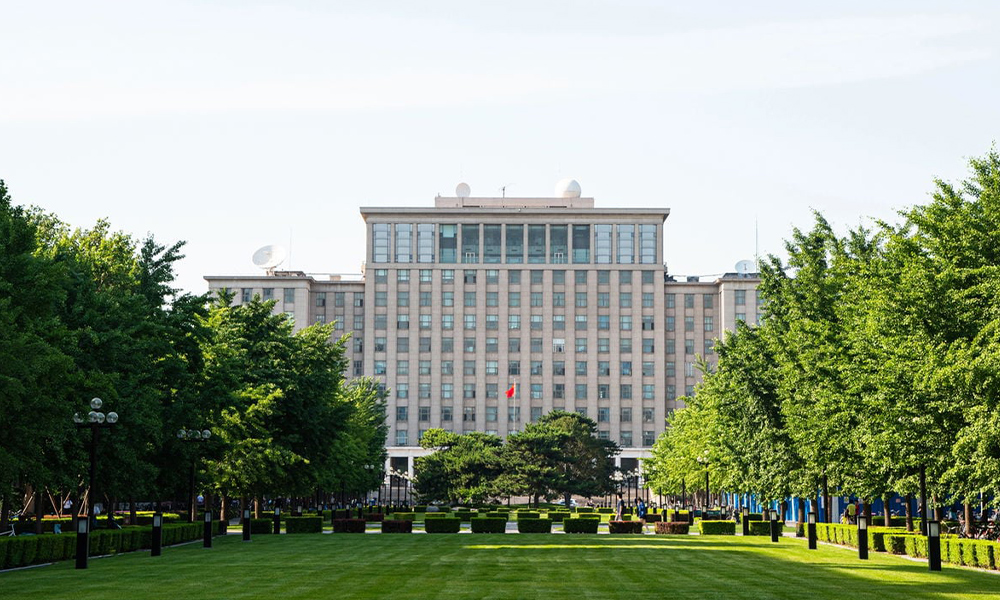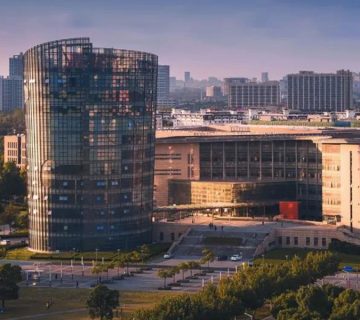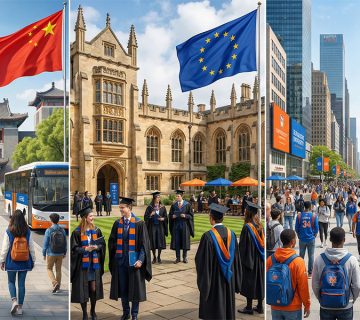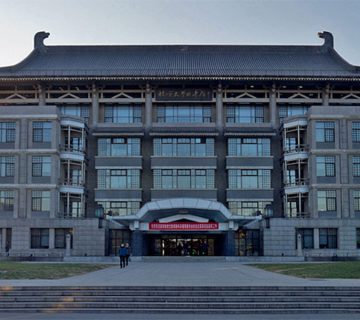Nestled in the bustling northwest corner of Beijing, Tsinghua University stands as a beacon of academic ambition and innovation. Founded in 1911, it has evolved from a modest imperial academy into one of the world’s premier research institutions. For aspiring students eyeing 2025 admissions, Tsinghua offers a gateway to China’s dynamic intellectual landscape. Tsinghua University Beijing draws global talent with its rigorous programs, while sub-keywords like Admission Requirements of Tsinghua University China highlight the structured yet accessible pathways for international applicants. Related aspects, such as Tsinghua University China Tuition Fees, reveal a commitment to affordability amid excellence.
This article from admission institute delves into the essentials for 2025, drawing from official university channels to guide you through majors, costs, rankings, and the profound benefits of joining this elite community. Whether you’re a high school graduate or a seasoned professional, understanding the documents and financials is key to turning your application into an acceptance letter. Planning to study at Tsinghua University Beijing in 2025? Here’s a complete breakdown of costs, documents.

Tsinghua University Majors
Tsinghua University’s academic portfolio is as vast as it is prestigious, spanning disciplines that mirror China’s ascent as a global powerhouse in technology, humanities, and beyond. For 2025, Tsinghua university Beijing welcomes international students into a spectrum of undergraduate and graduate programs, many tailored for non-Chinese speakers.
1. Undergraduate
At the undergraduate level, Tsinghua opens doors to 15 divisions, encompassing fields from engineering to liberal arts. Freshmen typically spend their first year in a broad curriculum, building foundational skills before declaring a major at the end of that period. This approach fosters versatility, allowing students to explore interests like electrical engineering or environmental science before committing.
Engineering remains the crown jewel, with majors in civil, mechanical, and computer science leading the pack. The School of Information Science and Technology, for instance, offers bachelor’s programs in artificial intelligence and data science, where students tackle real-world challenges like machine learning algorithms from day one. On the arts side, the Academy of Arts & Design provides unique tracks in sculpture and visual communication, blending traditional Chinese aesthetics with digital tools—a five-year commitment that culminates in a portfolio ready for global galleries. Science enthusiasts might gravitate toward the Department of Physics, where majors emphasize quantum computing and materials science, often with hands-on lab work in state-of-the-art facilities.
2. Graduate studies
Shifting to graduate studies, Tsinghua university Beijing shines brighter for those pursuing master’s or doctoral degrees. In 2025, over 53 schools and departments host international candidates, with more than 30 English-taught master’s and PhD programs. The Graduate School at Shenzhen International Graduate School (SIGS) stands out, offering interdisciplinary majors like sustainable energy and biotechnology. For example, the Master’s in Advanced Computing integrates AI with cybersecurity, attracting tech innovators worldwide. Doctoral candidates in the School of Economics and Management can specialize in fintech or behavioral economics, drawing on Beijing’s proximity to China’s financial nerve center.
International students benefit from bilingual options, easing the transition for those without fluent Mandarin. Programs like the Tsinghua-Aachen Joint Master’s in Resources and Environment combine German precision with Chinese scale, ideal for eco-conscious scholars. Admission to these majors’ hinges on alignment with Tsinghua’s ethos: innovation grounded in rigor. Applicants must review the Catalog of Graduate Programs 2025, which details prerequisites like prior coursework in calculus for STEM fields or portfolio submissions for design tracks.
What sets Tsinghua university Beijing majors apart is their emphasis on application. Undergrads in architecture don’t just draft blueprints; they collaborate on urban renewal projects in Beijing’s hutongs. Graduate students often join research labs funded by giants like Huawei or Alibaba, turning theoretical knowledge into patents. For 2025, expect expanded offerings in emerging areas like climate tech, reflecting China’s green ambitions. Selecting a major here isn’t merely academic—it’s a launchpad for shaping tomorrow’s world.

Cost of Studying in China
Embarking on a Tsinghua journey in 2025 demands a clear-eyed look at finances, particularly as related keyword Tsinghua University China Tuition Fees underscores the blend of value and investment. China, broadly, positions itself as an economical study destination compared to Western peers, with Beijing’s costs tempered by efficient public transit and subsidized dorms. Yet, Tsinghua’s prestige commands a premium, balanced by robust financial aid.
| University | QS 2025 Rank | Avg Tuition (USD) | Scholarship Availability |
| Tsinghua | 20 | 4,200 | High |
| Peking | 17 | 4,500 | |
| Fudan | 25 | 3,800 |
Updated 10/26/2025
1. Tuition Fees
Tuition forms the cornerstone. For undergraduates, expect around 30,000 RMB (roughly $4,200 USD) per year across most majors, though architecture’s extended program nudges it higher. Graduate fees vary: master’s in sciences and engineering hover at 33,000 RMB annually, while management tracks dip to 30,000 RMB. Doctoral programs
standardize at 40,000 RMB per year, with specialized ones like electronic information at SIGS reaching 75,000 RMB. These figures, stable from recent years, apply to 2025 international intakes, payable in RMB via bank transfer post-acceptance.
2. Miscellaneous Expenses
Beyond tuition, miscellaneous expenses add layers. The application fee—800 RMB—is non-refundable, covering online submission and initial review. Once admitted, insurance mandates about 800 RMB yearly, covering basic medical needs in Beijing’s top hospitals. Textbooks and supplies? Budget 2,000-3,000 RMB per semester, though digital resources from Tsinghua’s library mitigate this.

3. Living Costs
Living costs in Beijing paint a vibrant yet manageable picture. On-campus dorms, prioritized for internationals, range from 30 RMB per bed/day for triples to 40 RMB for doubles—translating to 5,000-7,000 RMB annually. Off-campus apartments in Haidian District, near Tsinghua’s gates, run 3,000-5,000 RMB monthly for a shared flat, but university shuttles make commuting feasible. Meals at campus canteens are a steal: 10-20 RMB per dish, fueling a monthly food bill of 1,500-2,000 RMB. Beijing’s metro, at 2-5 RMB per ride, keeps exploration cheap, while occasional splurges like the Great Wall day trip add 200 RMB.
4. Total
Total estimates for 2025? Undergrads might tally 50,000-60,000 RMB yearly (tuition + living), graduates 60,000-80,000 RMB, depending on lifestyle. These pale against U.S. ivies, where equivalents exceed $70,000 USD. China’s edge lies in its scale: hawker markets and student discounts stretch yuan further.
5. Scholarships
Scholarships transform the equation. The Chinese Government Scholarship (CGS) is the gold standard, waiving tuition, providing 3,500 RMB monthly stipends for masters (40,000 RMB yearly for PhDs), dorms, and insurance. Over 30,000 internationals have tapped this since Tsinghua’s early days. Beijing Government Scholarships cover partial tuition, while Tsinghua’s own awards, like the Tuition Scholarship, offset fees for high-achievers. For 2025, SIGS highlights CGS alongside university-specific aid, with annual reviews ensuring continuity. Applicants submit via the CSC portal by December 2024, aligning with Tsinghua’s January deadline.
Navigating costs requires foresight—exchange rates fluctuate, and inflation might tick fees up 5%. Yet, with 80% of internationals securing some aid, study in China at Tsinghua university Beijing feels less like a burden and more like an empowered choice. It’s an investment where cultural immersion amplifies every RMB spent.

Tsinghua University World Rankings
In the global academic arena, Tsinghua University Beijing commands respect that borders on reverence. Official metrics for 2025 affirm its trajectory, positioning it as Asia’s apex and a formidable contender worldwide. The QS World University Rankings 2025 crowns Tsinghua 20th globally, a leap from prior years, propelled by employer reputation and citations per faculty. This score reflects not just volume but impact—Tsinghua’s research output rivals MIT’s in engineering patents.
The Times Higher Education (THE) World University Rankings 2025 places its 12th, lauding its teaching and industry ties. Here, Tsinghua excels in international outlook, with 25% international faculty and partnerships spanning 200+ universities. The Academic Ranking of World Universities (ARWU, or Shanghai Ranking) 2024—latest pre-2025 data—ranks it 22nd, but subject-wise dominance is staggering: No. 1 in China for engineering, top 10 globally in computer science and physics.
These standings aren’t abstract; they’re earned through metrics like H-index scores and alumni outcomes. Tsinghua’s 400,000+ graduates include China’s president and tech titans, boosting employability scores to 98/100 in QS. For 2025 applicants, this translates to credentials that open doors—from Silicon Valley to Shanghai’s startups.
Subject rankings
Subject rankings deepen the allure. In QS 2025, electrical engineering hits 7th worldwide, materials science 11th. THE echoes this, with business and economics at 14th. ARWU spotlights mathematics at 101-150, but Tsinghua’s interdisciplinary edge—fusing AI with policy—elevates it. As China invests $500 billion in R&D by 2025, Tsinghua’s labs, like the Institute for Quantum Computing, propel these climbs.
Critics note rankings’ biases toward English outputs, yet Tsinghua counters with 30+ English programs and Nature Index leadership in physical sciences. For students, these positions signal quality assurance: a Tsinghua degree carries cachet in 150+ countries, per alumni surveys. In 2025, as geopolitical shifts spotlight Asia, Tsinghua’s ascent underscores studying here as a strategic move.
Benefits of Studying at Tsinghua University
The true draw of Tsinghua university, one of the best options to study in Beijing universities transcends numbers—it’s the alchemy of challenge and camaraderie that forges lifelong leaders.
1. Academic Excellence
Academic excellence pulses through every lecture hall, were Nobel laureates and Turing Award winners’ mentor small cohorts. In 2025, English-taught programs ensure accessibility, while the first-year exploratory curriculum for undergrads sparks discoveries that redefine careers. Imagine dissecting Beijing’s smog data in an environmental engineering class, directly informing national policy.
2. Research Opportunities
Research opportunities abound, with undergrads co-authoring papers in Nature and graduates accessing $1 billion in annual funding. Tsinghua’s 300+ labs, from robotics to biotech, offer paid internships—many leading to startups via the x-lab incubator. For internationals, this means hands-on impact: a 2024 PhD in AI developed facial recognition for disaster response, now deployed nationwide.

3. Campus life
Campus life buzzes with energy. The 400-acre grounds, dotted with Ming Dynasty pavilions and modern glass towers, host 50,000 students in a harmonious blend. Join dragon boat races on Weiming Lake or debate clubs blending Confucius with Kant. The International Students & Scholars Center (ISSC) eases settling in, offering visa workshops and homestay matches. With 3,000+ internationals from 120 countries, diversity thrives—think Diwali festivals alongside Mid-Autumn barbecues.
4. Global Collaborations
Global collaborations amplify horizons. Dual degrees with MIT or Oxford let you split time between Beijing and Boston, while exchange pacts with 300 institutions foster networks. Career prospects gleam: 98% employment within six months, per 2024 stats, with alumni at Google, Goldman Sachs, and China’s Central Bank. The Schwarzman Scholars program, a Tsinghua gem, grooms Rhodes-like leaders in U.S.-China relations.
5. Physical and Mental Support
For 2025, unique perks include sustainability initiatives—free electric bike shares and carbon-neutral dorms—aligning with China’s 2060 net-zero pledge. Mental health support has expanded, with 24/7 counseling in multiple languages. Ultimately, Tsinghua instills resilience: navigating Beijing’s hustle builds grit, while friendships across cultures expand worldviews. Graduates don’t just succeed; they innovate, bridging East-West divides. Studying here isn’t a chapter—it’s the narrative arc of a global life.
Conclusion
Studying at Tsinghua University Beijing in 2025 offers an unparalleled blend of academic excellence, cultural immersion, and career opportunities. With diverse majors, affordable tuition, and top-tier global rankings, Tsinghua empowers students to shape the future. Navigating the Tsinghua University China Admission Requirements unlocks access to cutting-edge research, vibrant campus life, and a global network. From engineering to arts, its programs foster innovation in China’s dynamic capital. Visit www.tsinghua.edu.cn for application details and join a community driving global impact. Tsinghua isn’t just an education—it’s a launchpad for leadership in a connected world, where your potential meets limitless possibilities. For additional information and expert consultation, contact us.
FAQs about Tsinghua University Beijing in 2025:
1. What are the key Tsinghua University China Admission Requirements for international students in 2025?
International undergraduates need a high school diploma, strong grades (recommended GPA 3.5/4.0), and language proficiency (HSK Level 5 for Chinese-taught programs or TOEFL ≥ 80/IELTS ≥ 6.5 for English-taught). Graduate applicants require a relevant degree, academic transcripts, recommendation letters, and a research proposal for PhD programs. Additional requirements, like portfolios or interviews, vary by major. Applications are submitted via Tsinghua’s online portal by January (scholarships) or March (self-funded).
2. How much are the Tsinghua University China Tuition Fees and living costs for 2025?
Undergraduate tuition is approximately 30,000 RMB ($4,200 USD) annually, while graduate programs range from 30,000–75,000 RMB depending on the major. Living costs, including on-campus dorms (5,000–7,000 RMB/year), meals (6,000 RMB/year), and transport, total $6,000–$12,000 USD annually. Scholarships in china like the Chinese Government Scholarship cover tuition, housing, and stipends, significantly reducing expenses.
3. What are the benefits of studying at Tsinghua University Beijing?
Tsinghua offers academic excellence with world-class faculty, access to cutting-edge research, and global recognition (ranked 12th in QS 2025). Students benefit from diverse majors, affordable costs, and a vibrant campus in Beijing. Global partnerships, career opportunities with top employers, and cultural immersion in China’s capital prepare graduates for leadership in a connected world.





No comment